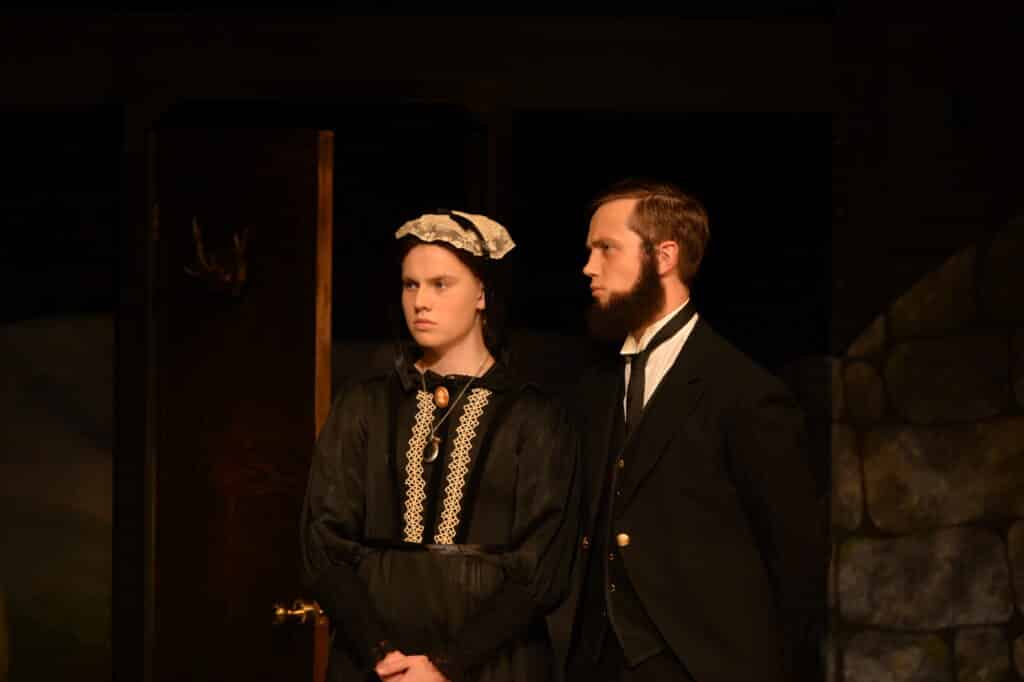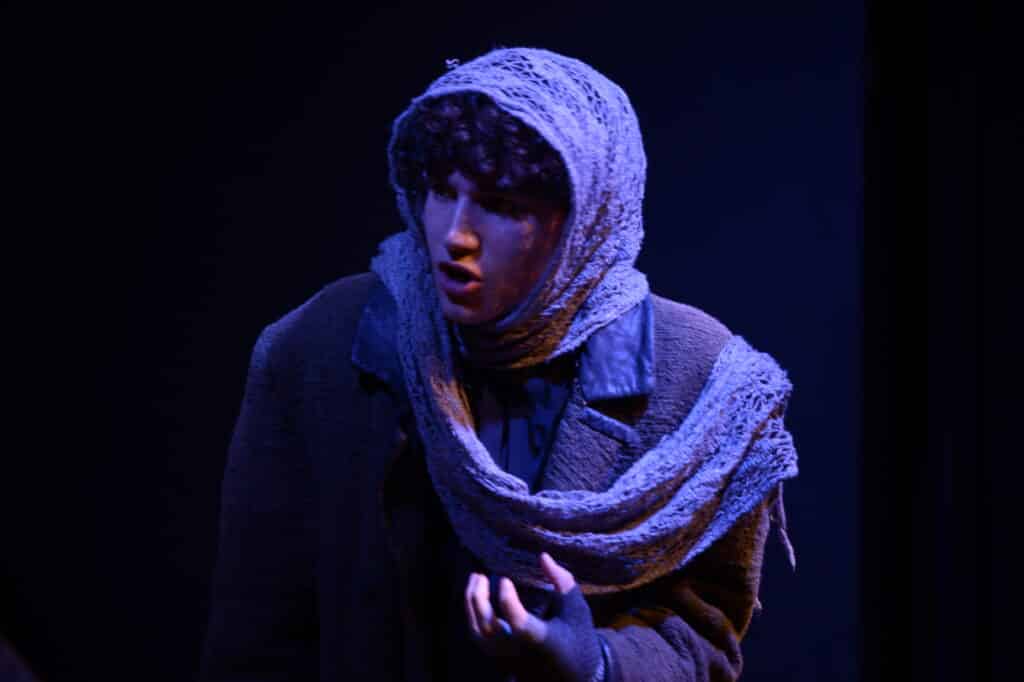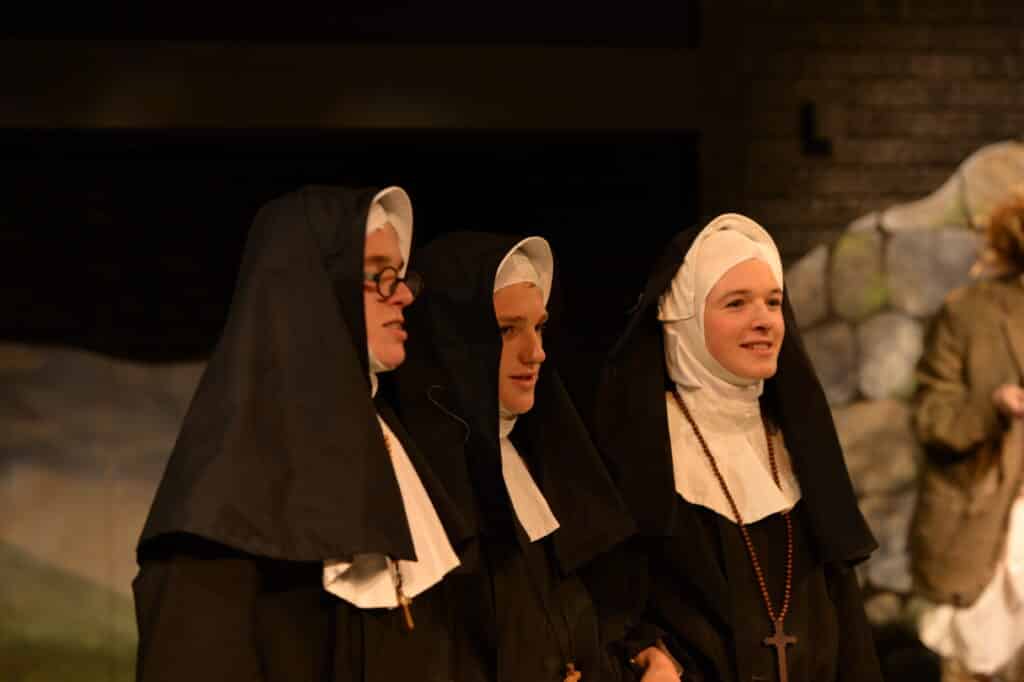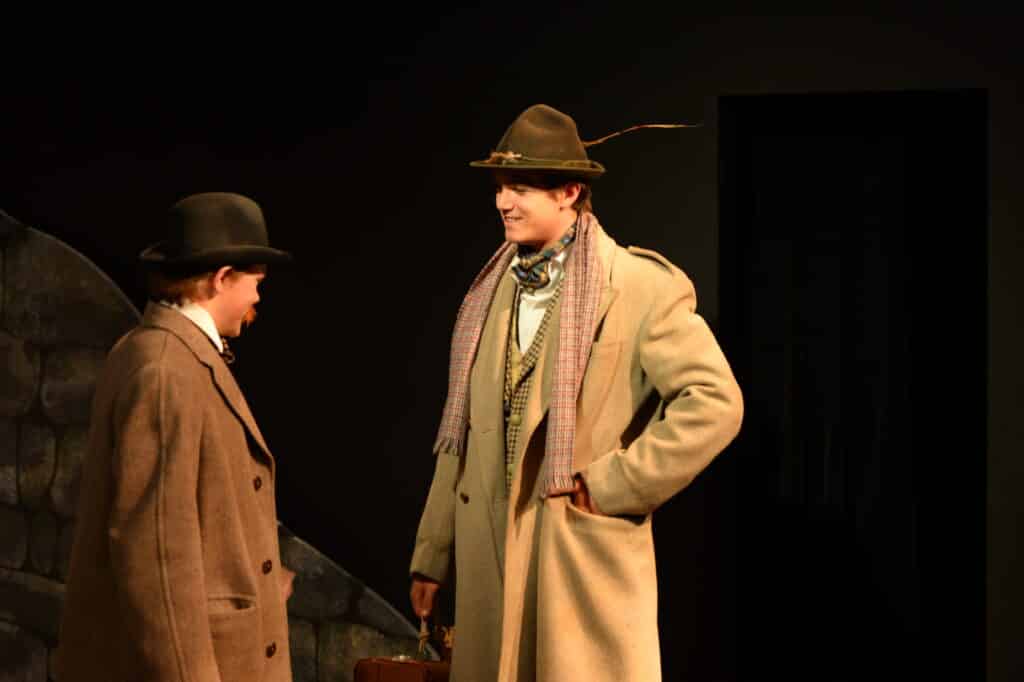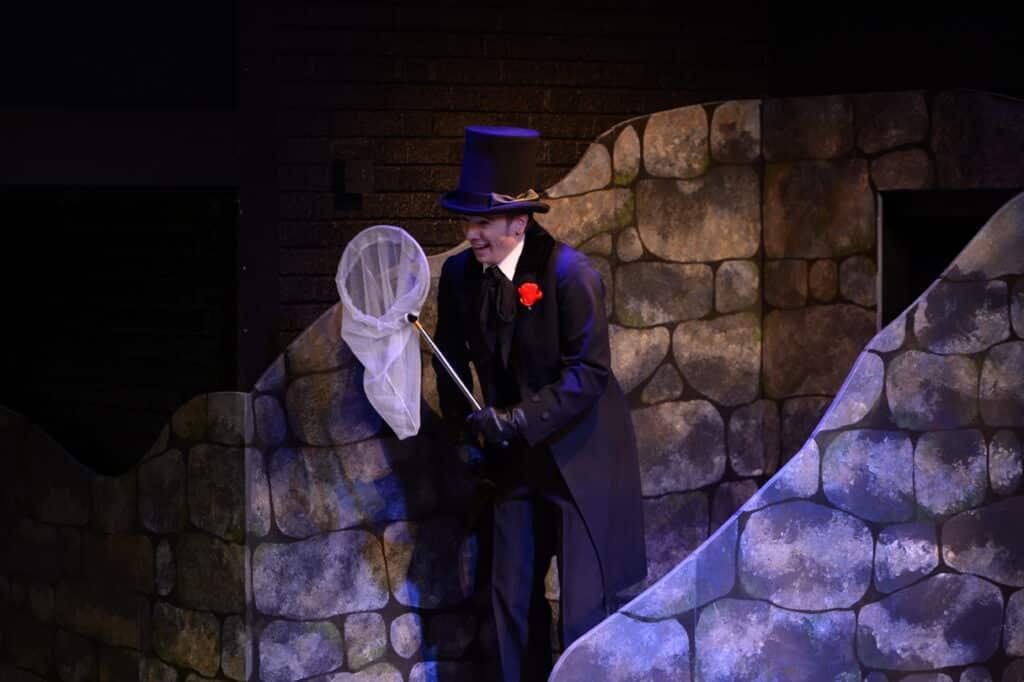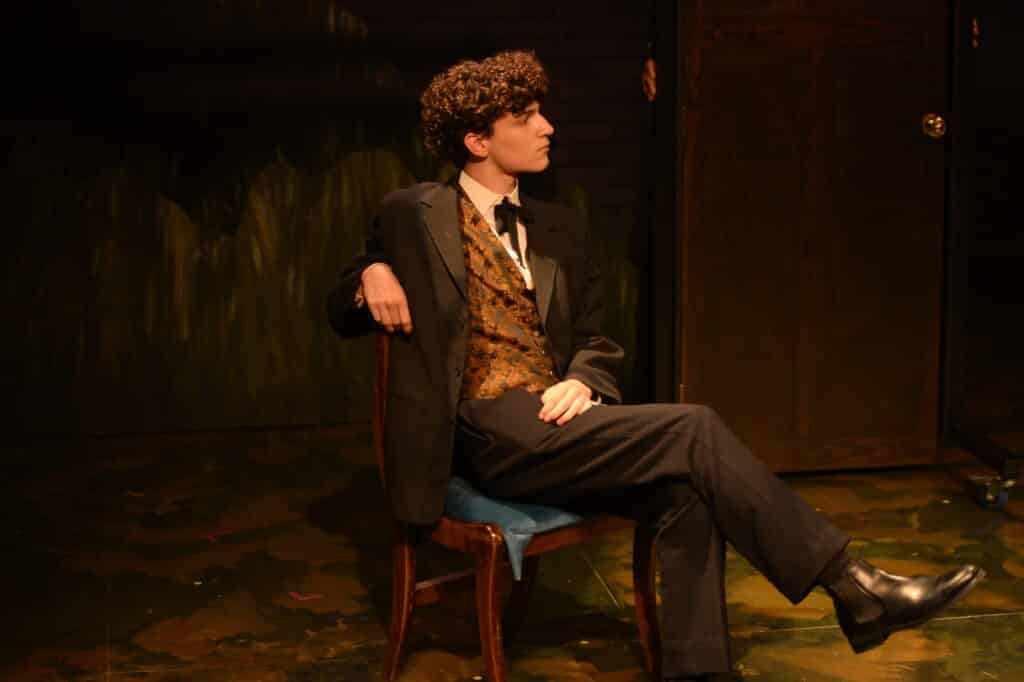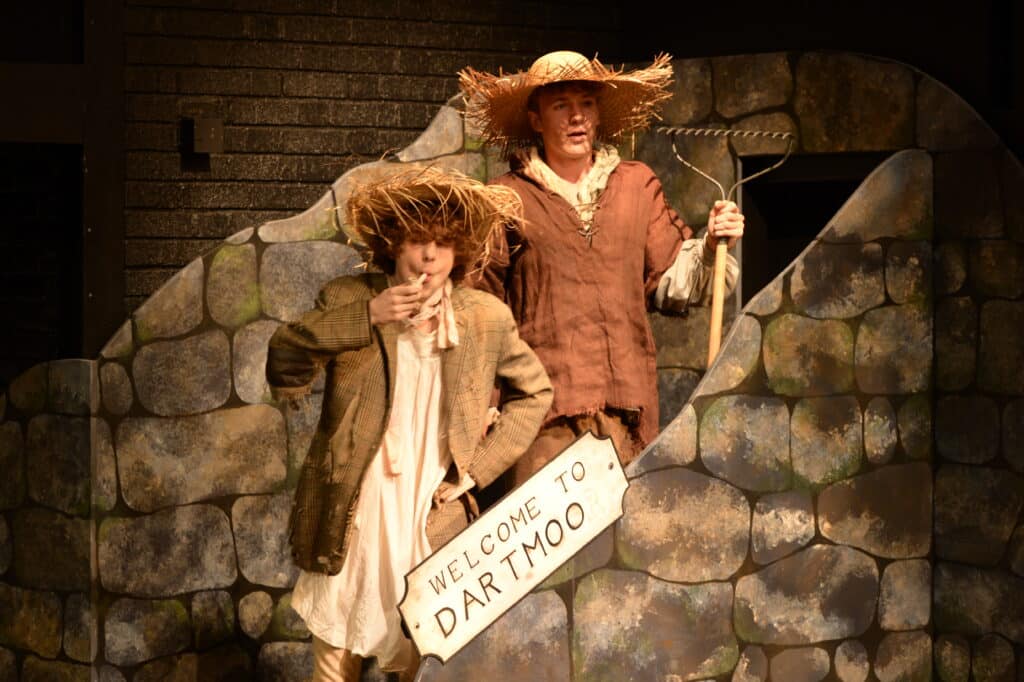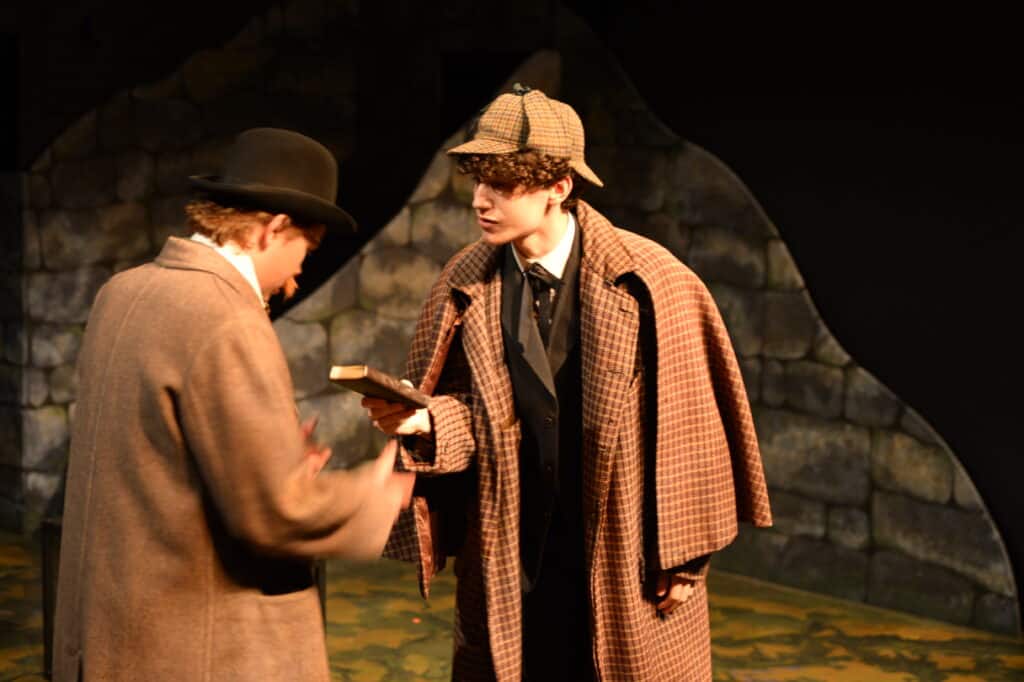Joseph W (Year 11) reviews the latest House play:
Filled with fog, the blood-curdling scream of Sir Charles Baskerville (Ayre J) pierces the air of the cold and forbidding moor, the guttural growling of a wild creature quaking the ground… and CUT! The ‘Stage Manager’ (Henry MCD), steps onto the stage, followed by the entire production (the ‘real’ stage managers unwillingly standing, clearly unhappy to be replaced by a fake). We are mysteriously warned that this story is so unsettling, so ‘tail-wrenching’, that sensitive viewers are advised to leave immediately through the Caccia doors.
From the outset, it is clear that this play will steer far from Arthur Conan Doyle’s classic terrifying mystery, and morph into the spirited comedic adaptation by RZRG, originally created for the comedy theatre troupe Peepolykus in 2007. The story we follow begins with the ever so dramatic Holmes (Alex G) and his sidekick/ best ‘fur-end’, (Blake B), who to Sherlock’s dismay, is admittedly, at the centre of the narrative here. Informed by Dr Mortimer (Lysander M-E), of the ‘houndish’ curse upon the Baskervilles, they wave goodbye to the actor, whose character’s role had been fulfilled.
Then the stage rapidly transforms into the humid gentlemen’s steam room – a half-naked trio perform an eccentric routine, their every move quite literally drowning out the dialogue on the other side. And all of a sudden, we are in a wild cart chase, a man with a hastily stuck-on beard darting across the stage, whizzing past to the caricature moving tableaux in a train with Watson, Sherlock, and three nuns (played by the same three actors in the steam room scene, which as you can imagine, brought an onslaught of raucous laughter) bouncing to the beat of the high-adrenaline escape music.
Without even knowing it, we were now in Dartmoor, where straw-hatted men gossip all day, and a stunningly beautiful Costa Rican señora seductively warns Sir Henry, who is instantly entranced. Their romance story is one filled with ‘ruff’ and tragic turns and panicked warnings every time they meet and all for the sake of true love. As she rushes off the stage, a small local, Willy, (Oliver D) tirelessly heaves on a rope connected to an imaginary horse, all the while quietly giggling, which slowly crescendos into a mad cackle, an off-pitch ringing to the cacophony of the spectators’ heaving chuckles.
The anarchic jokes, unapologetically used in places where the audience least expect it, not only propels the action to the speed of light, but also builds up the intensity – each antic constantly one[1]upping its predecessor, in an onslaught of quick, successive hilarity. Perhaps, even to the point where the recognisable whodunit story becomes a shadow to all the random craziness occurring on stage. Even then, there were some brilliant moments where the audience are involved in the jokes and actively participate, enhancing this interactive experience even more. At one point, the cast break the fourth wall again, claiming that the actors had received a hostile tweet on Twitter, during the interval, complaining of the ‘slow pace’ that Holmes was blamed for; they rewind into a breakneck (quite literally) recap of the entire first half, dashed through in minutes, with all the key moments even more frantic, every scream two times ‘shriekier’.
The blood moon rises at the centre of the backdrop, the first instances of super[1]natural lighting flooding the stage as Stapleton the butterfly catcher (Alec G) releases his hound upon Sir Henry, his final target. Glowing red, the marsh swallows its final victim. A dead corpse falls from the bannisters and onto the floor (Dun Dun DUN!!!). Silence.
Oh wait, never mind – ‘this is just a play and not real life’ – another reminder of the ‘play-within-a-play’ motif. Some might say it became ‘pawfully’ repetitive interrupting the juicy action with the same old jokes, but I found it charming, at the very least, to watch a piece of theatre in its raw and refreshing honesty.
Reviewing a comedy is always subjective, and very dependent on the audience of that night’s show – it is vital to appreciate the power of the active spectator on the performances of the actors, but also on the experience itself (if you went on Wednesday, you know what I am talking about). This adaptation succeeded in breathing life back into the dusty classic and revitalised the fondness we all have for the iconic Sherlock/Watson duo. Truly, ‘barkingly’ fun.

